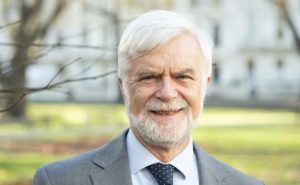The Intergovernmental Panel on Climate Change (IPCC), the UN body for assessing the science related to climate change, will be taking part in the 60th session of the Subsidiary Bodies (SBs) of the United Nations Framework Convention on Climate Change (UNFCCC). Taking place in Bonn from June 3 to 13, 2024, it is also known as the Bonn Climate Conference.

In the lead-up to the Conference, on Sunday, June 2, the IPCC Chair, Jim Skea, addressed the opening of the Dialogue on the importance of Just Transition pathways to achieving the goals of the Paris Agreement.
On Monday, June 3, the first official day of the Conference, the IPCC Secretary, Abdalah Mokssit, will speak at the opening of the Subsidiary Body for Scientific and Technological Advice (SBSTA).
The next day, Tuesday, June 4, the IPCC Chair will address the opening of the Research Dialogue.
Over the next week, the IPCC will also participate in the expert dialogue on children and climate change, expert dialogue on mountains and climate change, and the in-session workshop on progress in implementing the UNFCCC Gender Action Plan and on future work to be undertaken under gender and climate change.
The IPCC Task Force on Greenhouse Gas Inventories (TFI), together with the UNFCCC Secretariat, will host a side event on the IPCC Inventory Software as a tool to support the Enhanced Transparency Framework Implementation under the Paris Agreement on June 5.
At another side event scheduled for June 6, the IPCC Chair and Bureau Members will present the scientific foundations of the products that will be produced in the IPCC’s seventh assessment cycle and plans to enhance engagement with IPCC Focal Points.
In addition to these, IPCC experts will also be taking part in other side events and activities.
The IPCC was established by the United Nations Environment Programme (UNEP) and the World Meteorological Organisation (WMO) in 1988 to provide political leaders with periodic scientific assessments concerning climate change, its implications and risks, as well as to put forward adaptation and mitigation strategies. In the same year the UN General Assembly endorsed the action by the WMO and UNEP in jointly establishing the IPCC. It has 195 member states.
The IPCC is currently in its seventh assessment cycle, which formally began in July 2023 with the elections of the new IPCC and Taskforce Bureaus at the IPCC’s Plenary Session in Nairobi.
At its 60th Session (January 2024, Istanbul), the Panel agreed to produce the three Working Group contributions to the Seventh Assessment Report and its Synthesis Report, a Special Report on Climate Change and Cities and a Methodology Report on Short-lived Climate Forcers. During this cycle, the Panel will also deliver a Methodology Report on Carbon Dioxide Removal Technologies, Carbon Capture Utilisation and Storage.
